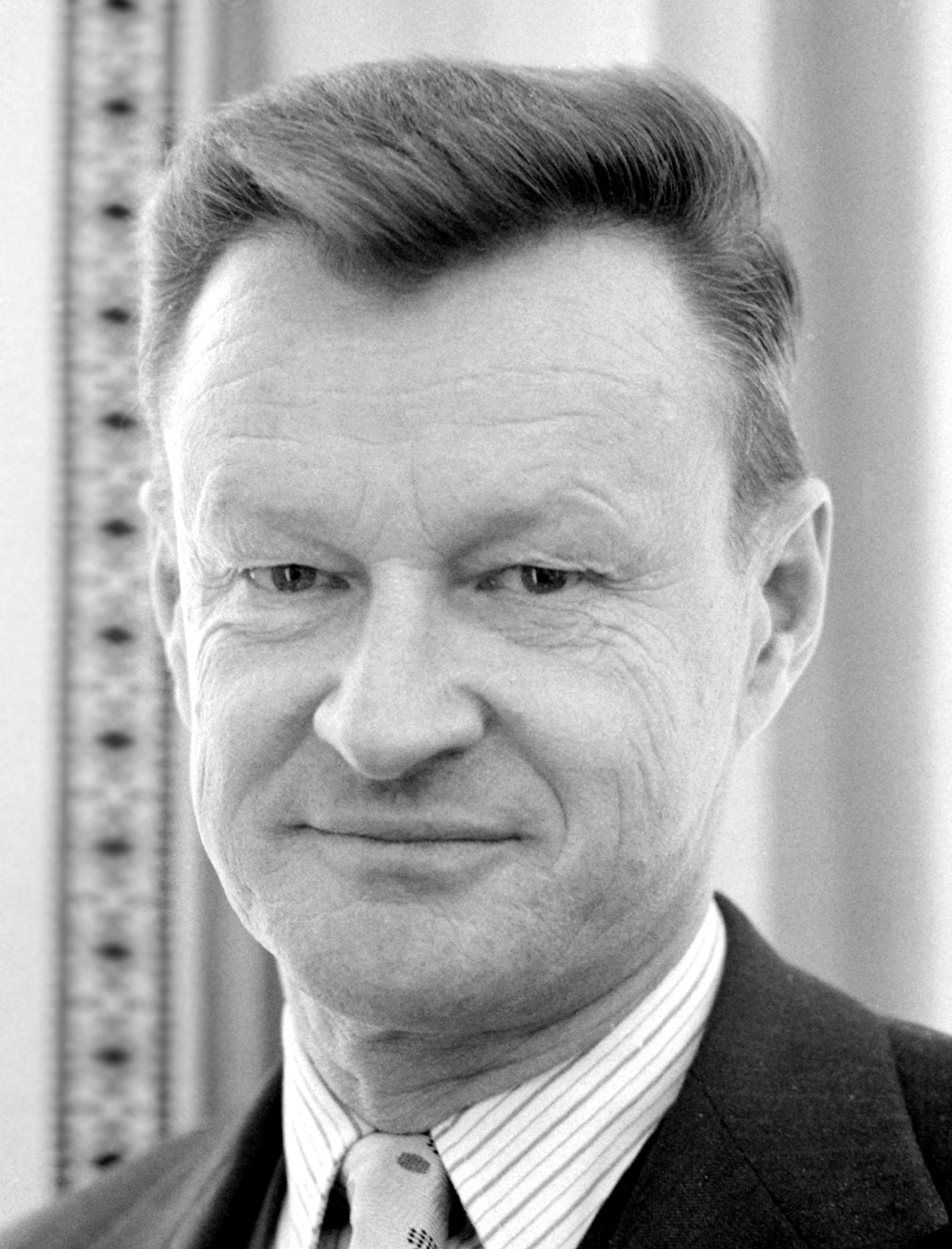Zbigniew Brzezinski: Frasi in inglese
“History is much more the product of chaos than of conspiracy.”
The New York Times, January 18, 1981 Quotation of the Day http://www.nytimes.com/1981/01/18/nyregion/quotation-of-the-day-227621.html?scp=28&sq=Brzezinski&st=nyt.
Variante: History is much more the product of chaos than of conspiracy.
Origine: The Grand Chessboard (1997), Chapter 1, Hegemony Of A New Type, p. 9.
PBS NewsHour, October 26, 2006 PBS Newshour http://www.pbs.org/newshour/bb/politics/july-dec06/iraq_10-25.html (2006). On the "benchmarks" used by George W. Bush.
Origine: The Grand Chessboard (1997), Chapter 4, The Black Hole, p. 104.
Interview with Le Nouvel Observateur, Paris (15-21 January 1998). (Brzezinski has repeatedly http://etd.lsu.edu/docs/available/etd-04252012-175722/unrestricted/WHITE_THESIS.pdf denied https://www.youtube.com/watch?v=RGjAsQJh7OM having said this, and no such memo exists. https://books.google.com/books?id=ToYxFL5wmBIC&q=deep+skepticism#v=snippet&q=deep%20skepticism&f=false)
Disputed
Origine: The Grand Chessboard (1997), Chapter 1, Hegemony Of A New Type, p. 25.
Elizabeth Becker, When The War Was Over..., 1979, p. 435 http://books.google.com/books?id=3NHoI2HoFiQC&pg=PA435&lpg=PA435&dq=%22i+encouraged+the+chinese+to+support+pol+pot%22+becker&source=web&ots=XLHBFETcFH&sig=kznWEHGxoTAgUR-BTChSThlGrpk (Brzezinski responded in the letter the NYT http://www.nytimes.com/1998/04/22/opinion/l-pol-pot-s-evil-had-many-faces-china-acted-alone-605387.html clarifying his postion at the time: "China acted alone [... Becker's article] asserts flatly as if it was a fact that the Carter Administration "helped arrange continued Chinese aid" to Pol Pot.[...] we told the Chinese explicitly that in our view Pol Pot was an abomination and that the United States would have nothing to do with him directly or indirectly.").
Disputed
Memo to President Carter following the Soviet invasion of Afghanistan (1979).
Origine: The Grand Chessboard (1997), Chapter 2, The Eurasian Chessboard, p. 35.
Origine: The Grand Chessboard (1997), Chapter 4, The Black Hole, p. 118.
1970, Between Two Ages : America's Role in the Technetronic Era.
Interview in The Huffington Post - NATO Should Stop Putin From Restoring Czarist Empire, Zbigniew Brzezinski Says http://www.huffingtonpost.com/2014/09/03/zbigniew-brzezinski-nato-putin-ukraine_n_5760068.html (September 3, 2014). Commenting on criticisms of NATO expansion to Eastern Europe.
Origine: The Grand Chessboard (1997), Chapter 2, The Eurasian Chessboard, p. 40.
Interview in The National Interest - Brzezinski on the Syria Crisis, Interview in The National Interest http://nationalinterest.org/commentary/brzezinski-the-syria-crisis-8636 (June 24, 2013).
“For America, the chief geopolitical prize is Eurasia.”
Origine: The Grand Chessboard (1997), Chapter 2, The Eurasian Chessboard, p. 30.
The Daily Show with Jon Stewart (March 14, 2007).
Origine: The Grand Chessboard (1997), Chapter 3, The Democratic Bridgehead, p. 62.
Origine: The Grand Chessboard (1997), Chapter 2, The Eurasian Chessboard, p. 35-36.
Spokespersons of US Right 'In Most Cases Stunningly Ignorant, Interview in Der Spiegel http://www.spiegel.de/international/world/0,1518,733079,00.html (December 6, 2010).
Origine: The Grand Chessboard (1997), Chapter 2, The Eurasian Chessboard, p. 31.
Origine: The Grand Chessboard (1997), Chapter 3, The Democratic Bridgehead, p. 75.
Origine: The Grand Chessboard (1997), Chapter 4, The Black Hole, p. 122.
